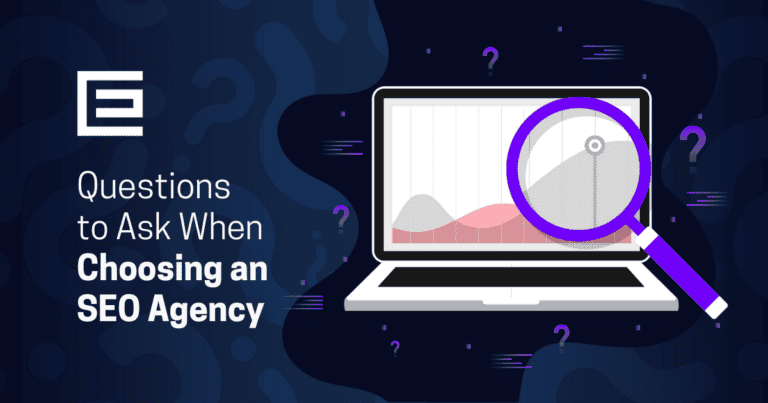Local SEO, or Local Search Engine Optimization, is a strategic process that focuses on optimizing a business’s online presence to attract more traffic from relevant local searches. These searches occur on Google and other search engines and are often performed by users seeking products or services in their immediate geographic area.
The importance of Local SEO cannot be overstated, especially for businesses with physical locations or those serving specific communities. By optimizing for local search, businesses can significantly increase their visibility to local customers, driving more foot traffic, phone calls, and ultimately, sales.
Local SEO vs General SEO
The key difference between Local SEO and general SEO lies in their respective targets. While general SEO aims to improve visibility and rankings on a global or national scale, Local SEO is tailored to appear in search results of a specific locality. This means that Local SEO involves optimizing your website and online content to rank well for search queries that are geographically constrained. For instance, a bakery in Boston would use Local SEO to appear in search results when someone nearby searches for “Bakeries in Boston” or “Where to buy pastries near me.”
This geographical targeting is what makes Local SEO so crucial for local businesses. It allows them to compete effectively in their specific market, reaching customers who are most likely to visit their store or use their services. In contrast, general SEO might target broader keywords that aren’t location-specific, which can be less effective for businesses that rely on local clientele. By focusing on Local SEO, businesses can ensure they’re not only visible online but visible to the right audience – the local audience.
The Evolution of Local SEO
Historically, local SEO emerged as a response to the growing number of internet users turning to search engines to find local businesses and services. In its early days, it was enough for businesses to simply include their city or region name within their website’s content and meta tags to rank well in local searches. However, as search engine algorithms became more sophisticated, the strategies for effective Local SEO had to evolve as well.
Recent changes in Local SEO have been largely driven by advancements in technology, particularly the rise of mobile and voice search. With the advent of smartphones, local searches have become increasingly prevalent, as people now have the ability to search for businesses and services “on the go.” This shift has led search engines like Google to place more emphasis on local search results, ensuring that users receive relevant, location-based information. As a result, businesses have had to prioritize mobile optimization, ensuring their websites are responsive and mobile-friendly to rank well in local searches.
The impact of voice search has further revolutionized Local SEO. With the growing popularity of voice-activated assistants like Siri, Alexa, and Google Assistant, more people are using voice commands to perform searches. These searches tend to be more conversational and locally focused. For instance, a user might ask, “Where’s the nearest coffee shop?” instead of typing “coffee shops near me.” This shift has prompted a change in keyword strategy, with a greater focus on long-tail, conversational keywords and phrases that are likely to be used in voice searches.
These technological advancements have made Local SEO more dynamic and complex. Businesses now need to consider various factors, including local keywords, mobile optimization, and voice search compatibility, to maintain and improve their local search rankings. This evolution signifies the growing importance of Local SEO in an increasingly mobile and voice-oriented world, highlighting the need for businesses to adapt to stay competitive in their local markets.
Key Components of Local SEO
Local SEO comprises several critical elements, each playing a vital role in enhancing a business’s visibility in local search results. Understanding and effectively implementing these components can significantly impact a business’s ability to attract local customers.
Google My Business Optimization
At the forefront of Local SEO is the optimization of your Google My Business (GMB) profile. This free tool provided by Google is essential for local businesses. A well-optimized GMB profile offers a wealth of information to potential customers, including business hours, location, contact details, and customer reviews. To fully leverage GMB, businesses should ensure their profile is complete, accurate, and regularly updated. This includes adding high-quality images, responding to customer reviews, and posting updates or offers. An active and accurate GMB profile not only enhances visibility but also builds trust and credibility with local customers.
Importance of NAP Consistency
NAP consistency refers to the uniformity of a business’s Name, Address, and Phone Number across the internet. This information should be consistently presented on your website, social media profiles, business directories, and other online platforms. Inconsistent NAP information can confuse potential customers and negatively impact your local search rankings. Search engines like Google value accurate and consistent data, as it helps them provide reliable information to users. Regular audits of your online presence to ensure NAP consistency can greatly improve your Local SEO efforts.
Localized Content and Keyword Optimization
Creating localized content is another cornerstone of effective Local SEO. This involves developing content that is specifically tailored to the local audience you are targeting. It could include blog posts about local events, community activities, or region-specific services offered by your business. Additionally, optimizing for local keywords is crucial. These are keywords that include local identifiers, such as city or neighborhood names, or phrases like “near me.” By incorporating these local keywords into your website’s content, meta descriptions, and titles, you can improve your visibility in local search queries. Localized content and keyword optimization not only boost your search rankings but also make your business more relevant and appealing to the local community.
Incorporating these key components into your Local SEO strategy can significantly enhance your online presence and attract more local customers. By focusing on GMB optimization, maintaining NAP consistency, and creating localized content with targeted keywords, businesses can effectively improve their rankings in local search results and stand out in their local market.
Local SEO Ranking Factors
Understanding the factors that influence local search rankings is crucial for any business looking to improve its visibility in local search results. Google, the most widely used search engine, considers several key signals when determining these rankings. By focusing on these factors, businesses can optimize their Local SEO strategies effectively.
Google’s Local Ranking Signals
Google’s local ranking algorithm is primarily influenced by three main factors: relevance, distance, and prominence. Relevance refers to how well a local listing matches what someone is searching for. This is where accurate and detailed business information becomes crucial. Distance considers how far each potential search result is from the location term used in a search. If a user doesn’t specify a location, Google will calculate distance based on what’s known about their location. Prominence is determined by how well-known a business is, which Google assesses based on information it gathers about a business from across the web, like links, articles, and directories. Enhancing these aspects can significantly improve a business’s local search rankings.
Importance of Reviews and Ratings
Reviews and ratings are vital components of Local SEO. They not only influence consumer decisions but also affect a business’s visibility in search results. Positive reviews and high ratings can improve a business’s credibility and attractiveness, encouraging more clicks and visits. Google considers both the quantity and quality of reviews when ranking businesses. Encouraging satisfied customers to leave positive reviews and responding professionally to all reviews, whether positive or negative, can greatly benefit a business’s local search presence.
Role of Local Backlinks
Backlinks, or links from other websites to your website, are a critical factor in SEO, and this holds true for Local SEO as well. Local backlinks, which are links from local sources like community websites, local news outlets, or local business associations, can significantly boost your local search rankings. These backlinks signal to search engines that a business is a relevant and integral part of the local community. Building a network of local backlinks involves engaging with local communities, participating in local events, and establishing relationships with other local businesses and organizations.
By focusing on these key ranking factors — optimizing for Google’s local signals, garnering positive reviews and ratings, and building a strong profile of local backlinks — businesses can enhance their Local SEO efforts. This, in turn, can lead to improved visibility in local search results, attracting more customers and driving growth.
Building a Local SEO Strategy
Developing a robust Local SEO strategy is essential for businesses looking to increase their visibility and attract more customers from their local area. A well-crafted strategy involves several key steps and requires an understanding of both the local market and the competitive landscape.
Steps to Create an Effective Local SEO Plan
Creating an effective Local SEO plan begins with a clear understanding of your business goals and target audience. The following steps can guide you through the process:
- Local Market Research: Start by researching your local market to understand the needs and behaviors of your target audience. Identify the most relevant local search terms and phrases they are using.
- Optimize for Google My Business: Claim and optimize your Google My Business listing, ensuring all information is accurate, complete, and up-to-date. Regularly update your profile with posts, offers, and events.
- Website Localization: Tailor your website’s content to your local audience. Include local keywords, create pages for each location (if you have multiple locations), and ensure your NAP (Name, Address, Phone Number) information is consistent across your website.
- Mobile Optimization: Ensure your website is mobile-friendly. With the increasing use of smartphones for local searches, having a responsive website is crucial.
- Local Content Creation: Develop content that resonates with your local audience, such as blog posts about local events, news, or community activities.
- Build Local Backlinks: Establish connections with local businesses, newspapers, and blogs to earn backlinks. Participate in community events and sponsor local activities to increase your local presence.
- Monitor and Respond to Reviews: Actively monitor customer reviews across various platforms and respond to them. Encourage satisfied customers to leave positive reviews.
- Track Your Progress: Use tools like Google Analytics to track your website’s performance and make adjustments to your strategy as needed.
Importance of Competitor Analysis
Competitor analysis is a critical component of any Local SEO strategy. Understanding what your competitors are doing can provide valuable insights into what works and what doesn’t in your specific market. Analyze their Google My Business listings, website content, backlink profile, and review management strategies. Look for gaps in their strategies that you can capitalize on. Additionally, competitor analysis can help you identify local keywords they are targeting, which can inform your own keyword strategy.
By following these steps and incorporating competitor analysis, businesses can create a comprehensive Local SEO strategy tailored to their unique market and audience. This approach not only improves visibility in local search results but also positions the business as a prominent and relevant choice for local customers.
Local SEO Tools and Resources
To effectively implement and manage a Local SEO strategy, businesses need to leverage various tools and resources. These tools not only simplify the process but also provide valuable insights that can help in fine-tuning your Local SEO efforts.
Overview of Essential Local SEO Tools
Several tools are essential for any Local SEO campaign, each serving a specific purpose:
- Google My Business: This free tool is vital for managing your business listing on Google. It allows you to control how your business information appears on Google Maps and search results.
- Moz Local: Moz Local helps in managing your business listings on multiple directories. It ensures NAP consistency across the web, which is crucial for Local SEO.
- SEMrush or Ahrefs: These comprehensive SEO platforms offer features for keyword research, backlink analysis, and competitor insights, which are valuable for both general and Local SEO strategies.
- BrightLocal: BrightLocal provides a suite of tools specifically designed for Local SEO, including local search rank tracking, audit tools for local listings and reviews, and competitor analysis.
- Yext: Yext is useful for managing your business listings across various online directories and ensuring information accuracy.
- Screaming Frog SEO Spider: This tool is excellent for auditing your website for common SEO issues and ensuring your site is optimized for local search.
How Tools Like Google Analytics and Google Search Console Aid in Local SEO
Google Analytics and Google Search Console are two powerful tools that play a significant role in Local SEO:
- Google Analytics: This tool provides insights into your website’s traffic, including how visitors find your site (organic search, direct visits, referrals, etc.), their geographic location, and their behavior on your site. By analyzing this data, you can understand which aspects of your Local SEO strategy are working and which areas need improvement. For instance, if you notice a high number of visitors from your target locality, it indicates your local SEO efforts are effective.
- Google Search Console: This tool helps you monitor and maintain your site’s presence in Google Search results. It allows you to see which queries bring users to your site, how often your site appears in Google Search, and how these metrics vary by location. This information is invaluable for refining your keyword strategy and understanding how well your site is performing in local search results.
Together, these tools provide a comprehensive view of your website’s performance in the context of Local SEO. They help in tracking the effectiveness of your Local SEO strategy, identifying areas for improvement, and understanding how users interact with your site. By leveraging these tools, businesses can make data-driven decisions to enhance their local search presence and attract more local customers.
Advanced Local SEO Techniques
To further enhance Local SEO efforts and stand out in competitive local markets, businesses can adopt advanced techniques. These techniques involve a deeper understanding of SEO and a more strategic approach to online marketing. Two such advanced techniques are leveraging local structured data markup and utilizing local social media strategies.
Leveraging Local Structured Data Markup
Structured data markup is a powerful tool in the arsenal of Local SEO. It involves adding specific code (in a format known as Schema markup) to your website to help search engines better understand the content and context of your pages. For local businesses, this can include information such as your business’s name, address, phone number, opening hours, and even customer reviews.
By implementing this markup, you make it easier for search engines to display this information in rich snippets and knowledge graphs in search results. This not only enhances your visibility in search results but also provides potential customers with useful information at a glance. For example, if someone searches for your business, they might see a rich snippet that includes your business hours and star ratings from customer reviews, directly in the search results. This can significantly improve click-through rates and drive more traffic to your site.
Utilizing Local Social Media Strategies
Social media is an invaluable tool for connecting with local audiences. While it’s not a direct ranking factor for Local SEO, it plays a crucial role in building brand awareness and engagement within the local community. To effectively utilize social media for Local SEO, consider the following strategies:
- Geo-targeted Content: Create content that is specifically tailored to your local audience. This can include posts about local events, community activities, or local issues. Such content resonates more with your local audience and can increase engagement.
- Local Hashtags and Geo-tagging: Use local hashtags and geo-tag your location in your posts. This increases the visibility of your posts to a local audience and can help attract local followers.
- Engaging with Local Communities: Actively engage with other local businesses, influencers, and community groups on social media. This can include sharing their content, commenting on their posts, or even collaborating on local events or promotions.
- Promoting Local Reviews and Testimonials: Share positive reviews and testimonials from local customers on your social media profiles. This not only showcases your credibility but also encourages other local customers to visit your business.
By leveraging local structured data markup and utilizing local social media strategies, businesses can enhance their Local SEO efforts. These advanced techniques help in building a stronger local online presence, improving search rankings, and engaging more effectively with the local community.
Future of Local SEO
Hopefully, It’s clear by now that the role of Local SEO in digital marketing is both significant and evolving. Local SEO is an essential strategy for businesses seeking to establish a strong presence in their local markets. By focusing on key components such as Google My Business optimization, maintaining NAP consistency, creating localized content, and understanding the importance of reviews, ratings, and local backlinks, businesses can significantly enhance their visibility in local search results.
Summarizing Key Points
Local SEO is distinct from general SEO in its focus on geographic targeting. The evolution of Local SEO has been shaped by technological advancements, particularly the rise of mobile and voice search. Businesses must adapt to these changes by optimizing their online presence for local searches, which includes leveraging tools like Google Analytics and Google Search Console, and employing advanced techniques such as structured data markup and local social media strategies.
Predictions for Local SEO Trends
Looking to the future, several trends are likely to shape the landscape of Local SEO. Firstly, the continued rise of mobile and voice search will further emphasize the need for mobile-optimized, locally relevant content. Voice search, in particular, will require businesses to adapt their keyword strategies to be more conversational and question-based.
Artificial Intelligence (AI) and machine learning are expected to play a larger role in how search engines understand and prioritize local search queries. This could lead to more personalized and accurate local search results based on individual user behavior and preferences.
Another trend is the increasing importance of hyperlocal SEO. As GPS technology becomes more precise, businesses will need to target not just cities or neighborhoods, but also specific streets and locations. This hyperlocal approach will provide even more targeted and relevant results to users.
Lastly, the integration of local search with augmented reality (AR) offers exciting possibilities. AR could allow users to view local business information and reviews overlaid on their real-world environment through their smartphone cameras, providing an immersive local search experience.
In short, Local SEO is a dynamic and vital aspect of digital marketing that requires continuous adaptation and innovation. By staying abreast of current trends and anticipating future developments, businesses can position themselves to effectively meet the needs of their local customers and succeed in the ever-evolving digital landscape.
FAQs
1. How long does it take to see results from local SEO efforts?
The time it takes to see results from local SEO can vary depending on factors such as competition, industry, and the quality of your efforts. Generally, it can take anywhere from 3 to 6 months to see significant improvements in your local search rankings.
2. Can I do local SEO myself, or should I hire a professional?
While it’s possible to handle local SEO yourself, it requires a significant investment of time and effort to learn and implement the best practices. If you’re unable or unwilling to dedicate the necessary resources, it’s a good idea to consider hiring a professional or agency to help with your local SEO efforts.
3. How do I know if my local SEO strategy is working?
By regularly tracking and analyzing metrics like organic traffic, keyword rankings, and user engagement, you can assess the effectiveness of your local SEO strategy and make adjustments as needed.
4. How important are online reviews for local SEO?
Online reviews are crucial for local SEO. They not only help build trust and credibility with potential customers but also influence your local search rankings. Encourage your customers to leave reviews and respond to them professionally to optimize your local SEO efforts.
5. How can I find local keywords for my business?
Use keyword research tools like Google’s Keyword Planner, Moz, or SEMrush to identify local keywords that are relevant to your business and have a high search volume. Focus on keywords that include your target location or terms related to your industry and location.
Tags: Our Favorites







